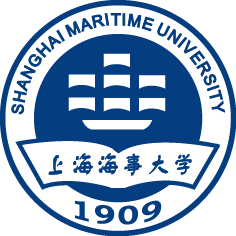| Subject | Rank |
|---|---|
Marine/Ocean Engineering | 16 |
Transportation Science & Technology | 51-75 |
Oceanography | 101-150 |
Instruments Science & Technology | 201-300 |
Economics | 301-400 |
Electrical & Electronic Engineering | 401-500 |
Computer Science & Engineering | 401-500 |
Management | 401-500 |


Shanghai Maritime University (SMU) is a multi-disciplinary university that encompasses such areas as engineering, management, economics, law, liberal arts, and science, with a special emphasis on shipping technology, economics and management. Chinese maritime education originated at Shanghai and grew out of the Shipping Section of Shanghai Industrial College founded in 1909 (towards the end of the Qing Dynasty). SMU was established by the Ministry of Communications in 1959. According to the university layout adjustment in Shanghai, and for better service of construction of Shanghai international shipping center, Lingang new campus inaugurated in 2008. At present the university runs 2 post-doctoral research stations, 19 doctoral programs, 59 master’s degree programs, 45 bachelor’s degree programs, and 10 associate degree programs. SMU boasts 10 provincial and municipal key research institutes and laboratories, 1 state-level key discipline, 5 state-level specialties with special features, 9 ministerial or municipal key disciplines, and 17 Shanghai municipal “educational heights”. SMU owns an aquatic training center, the Yufeng Ship, a 10-thousand-ton container ship for teaching and internship training, and a newly-built 48-thousand-ton Yangtze handymax bulk carrier for teaching and internship training ship, named Yuming ship. In the MOE evaluation of undergraduate education in 2004, SMU was awarded an “A”(Excellent). Then in 2006 the SMU English-language specialty won another “A” in the MOE assessment. The university has won multiple awards for research including national awards for science and technology projects and awards for scientific and technological progress above the municipal and ministerial level in 2013. SMU presently consists of Merchant Marine College, College of Transport and Communications, School of Economics & Management, College of Logistics Engineering (Sino-Dutch Mechanical and Electronic Engineering College), Law School, College of Information Engineering, College of Foreign Languages, College of Ocean Science and Engineering, College of Arts and Sciences, Scientific Research Academy, etc. SMU has over 20,000 full-time students, of whom over 17,000 are undergraduates and over 3,000 are postgraduate students. Of the over 1,000 full-time teachers, 150 are professors and 58 percent hold a doctorate. Over the past decades the university has produced specialists of various types at various levels for the country’s shipping industry. The graduated students are employed in shipping companies, port enterprises and government institutions. Deservedly, SMU has been honored as a “cradle of international shipping specialists”. SMU has always attached much importance to exchange and cooperation with overseas academies, institutions and industry companies, and has established close ties with over 70 institutions in aspects of teacher communication, joint school-running, scientific research cooperation, students exchange, etc, and close contacts with international noted shipping organization/institution, (e.g.) International Maritime Organization, The Baltic and International Maritime Council, Classification society in Norway. SMU has opened up “international class”, which attracts students of maritime institutions in USA, Korea, Poland, Russia, German, Ukraine, etc. Approved by the Education Ministry of China in 2011, the Bachelor of Science program in Logistics Management, offered by Shanghai Maritime University in collaboration with Regional Maritime University is open to applicants from Central and West Africa, which is the pioneering overseas program that can be awarded Chinese bachelor's degree among Shanghai universities. Since 2012, SMU is approved to accept the Chinese Government Scholarship students, which will be more conducive to promoting the process of internationalization of SMU.


